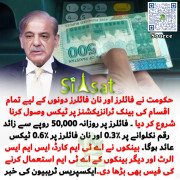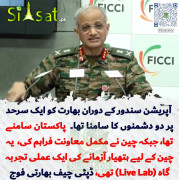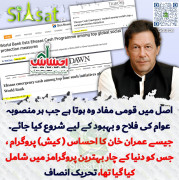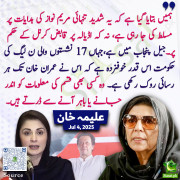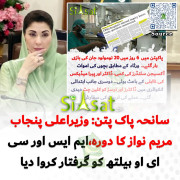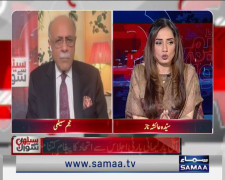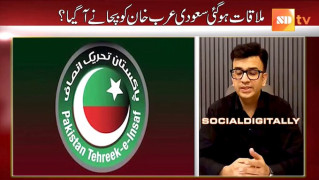Sohail Shuja
Chief Minister (5k+ posts)
EDITORIAL: The World Bank clearly doesn’t feel that the global economy is ready to shake off the effects of the pandemic just yet since it has cut growth forecasts for the United States (US), the Euro area and China and also warned that high debt levels, rising income inequality and new coronavirus variants continue to threaten recovery in developing economies. That explains why it expects global growth to decelerate “markedly” to 4.4 percent in 2022 from 5.5 percent in 2021, and further to 3.2 percent in 2023.
With pent-up demand dissipating and governments across the world unwinding fiscal and monetary support schemes just as the Omicron variant of Covid-19 forces yet another rush to hospitals and limited lockdowns in a number of countries, things are expected to get at least a little worse before than can even begin getting any better. The IMF (International Monetary Fund) is also expected to make a similar downward revision of global growth in its own report, which is due on Jan 25.
Poor countries are most at risk, quite naturally, because they’ve seen a very large number of people fall back below the poverty line over the last couple of years. Such things spill over into all sorts of other indicators like literacy rates, employment rates, crime rates, etc., all of which combine to push the economy even deeper into trouble. There’s also the prospect of looming food crises, with UN (United Nations) agencies already having warned about “famines of biblical proportions” if growth and trade bottlenecks are not overcome quickly.
Yet coughing up extra cash for things like food is one of the biggest problems since most developing countries are already burdened with excessive debt. And allocating resources for emergencies, on top of all the money that has gone into stimulus packages and industry-specific incentives, is going to require generous handouts by International Financial Institutions (IFIs) just like the World Bank and IMF.
Pakistan’s situation is very instructive. It was able to throw enough money into the economy to survive the lockdown that came with the first wave of the coronavirus, and it opened up earlier than most countries, so it has so far been spared the kind of trauma that some countries in Latin America, for example, have had to endure. Closer to home, Sri Lanka has run into the sort of debt problems that are forcing it to seek renegotiation of some outstanding loans with China and also ask for more rather than go to the IMF.
But Pakistan’s economy is still in a very precarious position and failure to revive the IMF programme could well push it over the edge because fresh loans that we will still be in desperate need of will dry up or become more expensive. And since Omicron has pushed the positivity rate above 6 percent once again, the threat that this latest wave presents to the economy, regardless of the fate of the EFF (Extended Fund Facility), is also very real.
Considering the circumstances, the world’s richer countries will have to step in and help the poorer ones. G20 countries provided limited debt relief to a few countries, but clearly a lot more is going to be needed. It’s very clear that a very different world is going to emerge from the pandemic than the one that sleepwalked into it.
And unless developing countries are provided substantial debt relief, if not outright write-offs, some of them might not make it. A few would surely be forced down the road to sovereign default at least, which always extracts a very heavy toll on the financial and social fortunes of ordinary people.
Now that the international community, especially its rich and powerful bloc, is in possession of this information, it must do whatever is necessary to make sure that all countries make it through what remains of the pandemic and its lockdowns without the kind of damage that can be avoided.
Copyright Business Recorder, 2022
With pent-up demand dissipating and governments across the world unwinding fiscal and monetary support schemes just as the Omicron variant of Covid-19 forces yet another rush to hospitals and limited lockdowns in a number of countries, things are expected to get at least a little worse before than can even begin getting any better. The IMF (International Monetary Fund) is also expected to make a similar downward revision of global growth in its own report, which is due on Jan 25.
Poor countries are most at risk, quite naturally, because they’ve seen a very large number of people fall back below the poverty line over the last couple of years. Such things spill over into all sorts of other indicators like literacy rates, employment rates, crime rates, etc., all of which combine to push the economy even deeper into trouble. There’s also the prospect of looming food crises, with UN (United Nations) agencies already having warned about “famines of biblical proportions” if growth and trade bottlenecks are not overcome quickly.
Yet coughing up extra cash for things like food is one of the biggest problems since most developing countries are already burdened with excessive debt. And allocating resources for emergencies, on top of all the money that has gone into stimulus packages and industry-specific incentives, is going to require generous handouts by International Financial Institutions (IFIs) just like the World Bank and IMF.
Pakistan’s situation is very instructive. It was able to throw enough money into the economy to survive the lockdown that came with the first wave of the coronavirus, and it opened up earlier than most countries, so it has so far been spared the kind of trauma that some countries in Latin America, for example, have had to endure. Closer to home, Sri Lanka has run into the sort of debt problems that are forcing it to seek renegotiation of some outstanding loans with China and also ask for more rather than go to the IMF.
But Pakistan’s economy is still in a very precarious position and failure to revive the IMF programme could well push it over the edge because fresh loans that we will still be in desperate need of will dry up or become more expensive. And since Omicron has pushed the positivity rate above 6 percent once again, the threat that this latest wave presents to the economy, regardless of the fate of the EFF (Extended Fund Facility), is also very real.
Considering the circumstances, the world’s richer countries will have to step in and help the poorer ones. G20 countries provided limited debt relief to a few countries, but clearly a lot more is going to be needed. It’s very clear that a very different world is going to emerge from the pandemic than the one that sleepwalked into it.
And unless developing countries are provided substantial debt relief, if not outright write-offs, some of them might not make it. A few would surely be forced down the road to sovereign default at least, which always extracts a very heavy toll on the financial and social fortunes of ordinary people.
Now that the international community, especially its rich and powerful bloc, is in possession of this information, it must do whatever is necessary to make sure that all countries make it through what remains of the pandemic and its lockdowns without the kind of damage that can be avoided.
Copyright Business Recorder, 2022
- Featured Thumbs
- https://i.brecorder.com/primary/2022/01/61e21e8e27955.jpg



